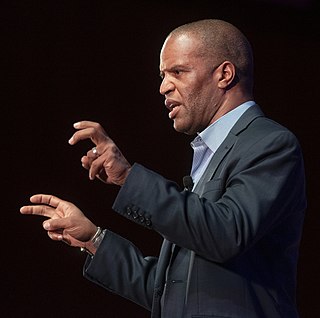A Quote by Ben Bernanke
I don't think there are any students who should not be exposed to a basic financial literacy course.
Related Quotes
We don't invest in financial literacy in a meaningful way. We should be teaching elementary school children how to balance a checkbook, how to do basic accounting, why it's important to pay your bills on time. First, education. Begin the learning process as early as possible, in elementary school. Second, encourage and support entrepreneurism. Third, policy. I know it's a priority of the US Treasury to augment financial inclusion and increase financial literacy.
Let's be clear about what Common Core is. It spells out what students should know at the end of each grade. The goal is to ensure that our students are sound in math and literacy and that our schools have some basic consistency nationwide. But the standards do not dictate a national curriculum, and teachers are not told how or what to teach.
Financial literacy is not an end in itself, but a step-by-step process. It begins in childhood and continues throughout a person's life all the way to retirement. Instilling the financial-literacy message in children is especially important, because they will carry it for the rest of their lives. The results of the survey are very encouraging, and we want to do our part to make sure all children develop and strengthen their financial-literacy skills.
The Harper Government is committed to ensuring that seniors have the skills they need to make solid financial choices. Seniors today face an increasingly complex financial marketplace, and it will take the combined efforts of public and private sector organizations to help seniors navigate the many financial choices they face. The start of Financial Literacy Month is an excellent opportunity to thank the Canadian Bankers Association and encourage other private sector organizations to take an active role in providing financial literacy support to Canada's seniors.
If the students don't want to learn about evolution, they shouldn't be in the course. A biology course that teaches creationism is not a science course, it's a religion course. So the students demanding that creationism be given credence in that course are out of line and are denying the academic freedom of the professor. They are calling into question the scientific basis of the material that's being presented. And students are not in a position to do that.
I believe that the financial crisis of 2008/9 exposed more a lack of ethics and morality - especially by the financial sector - rather than a problem of regulation or criminality. There were, of course, regulatory lessons to be learned, but at heart, there was a collective loss of our moral compass.
In terms of my profession, I'm passionate about financial literacy. I want to live in a financially literate society. I want kids to understand the importance of savings and investing. I want to try to replicate the great savers who came out of the Depression, the best savers the country has ever seen. It's crucial that people understand the importance of financial literacy, because it's actually life saving.
Literacy is a bridge from misery to hope. It is a tool for daily life in modern society. It is a bulwark against poverty, and a building block of development... For everyone, everywhere, literacy is, along with education in general, a basic human right.... Literacy is, finally, the road to human progress and the means through which every man, woman and child can realize his or her full potential.



































